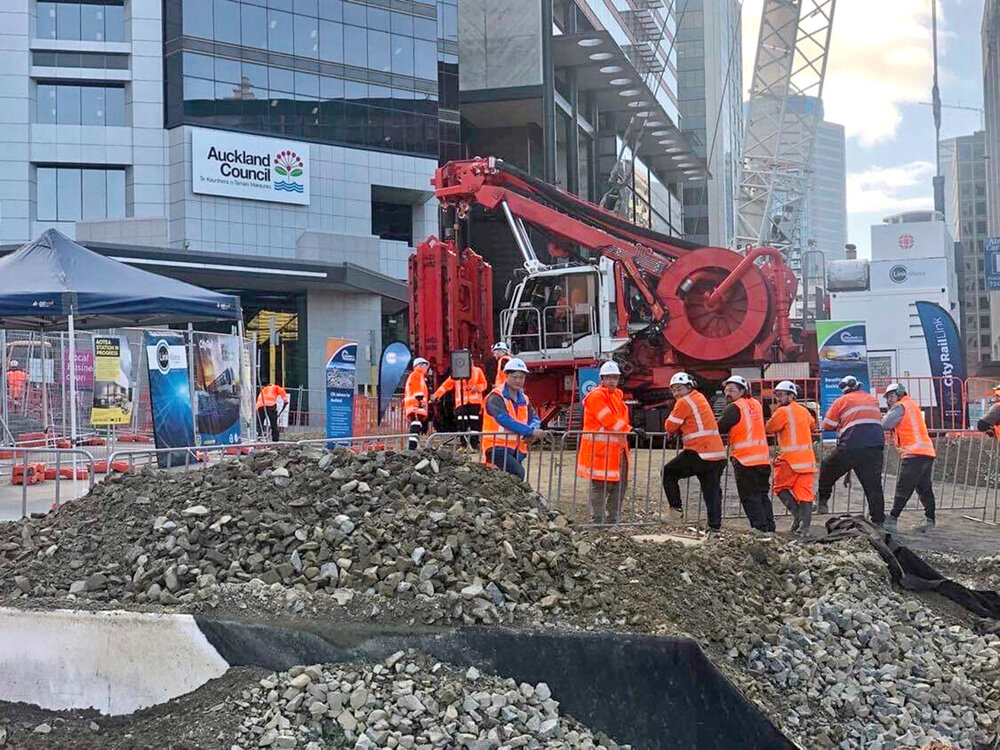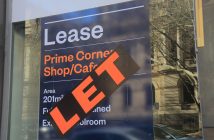What has hit the central city hardest is not the economic fall-out from Covid-19, but the City Rail Link and other major infrastructure projections which have effectively closed off large parts of the CBD, says Director of New Zealand Mortgages & Securities (NZMS) James Kellow

In many ways Auckland’s CBD is trailing behind the city fringe, but property values are holding up well with plenty of development and investment underway. Downtown Auckland will bounce back and will continue to reinvent itself as it always has.
Once upon time council prohibited people from living there, then it was filled up with international students, backpackers, and Airbnbs. Now we have high-grade apartments and a 5-star Park Hyatt in Wynyard Quarter. Twenty years ago, the bottom of Queen Street was littered with $2 shops, then in came Gucci and other labels. Change is the only certainty.
While the CBD is now congested with orange cones, the America’s Cup at the end of summer will give a sugar boost to the downtown economy. Then once the $5b City Rail Link is completed in late 2024, Auckland will see some development of convenience retail and the likes around the new underground train stations and more residential conversion of 1990’s commercial offices.
While some observe that 2020 may change work habits forever, with more people working from home and meeting via Zoom, the need for quality commercial office space will not diminish.
Sure, some consultants and some smaller SMEs have exchanged their leases for the kitchen table, but serious businesses can’t do this. They need the personal interaction, workplace engagement and sharing of ideas. They’ll keep demanding high-quality, well located office space and developers will keep building it with obsolete buildings then repurposed.
As for commercial property owners and investors abandoning the CBD, that’s not going happen either.
Where else are they going to put their money? Property asset values continue to increase, and sure rental yields are now well below 5%, but still considerably higher than bank deposit rates which are now converging on zero. We’re not seeing headlines about big buildings in the central city changing ownership, because they’re not for sale.
The likes of strata titles are being picked off, but funds and property syndications are struggling to secure significant product in the CBD. They know advertising a good return in the current environment will see ‘mum and dad’ investors flock to solid ‘bricks and mortar’ security. But again, there’s just not the stock as property owners don’t want to sell.
Many landlords have taken a hit this year, but the good ones will survive, knowing that flexibility trumps vacant premises. Lazy or greedy landlords are the ones most at risk of losing tenants.
Landlords are having to give many tenants a leg-up but at the same time they know their yielding asset continues to appreciate. The medium to long-term lease income profile remains strong, and of course business and consumer confidence eventually returns.
As New Zealand heads out of the immediate global health crisis and into a post-Covid economic recovery, two things weigh in the central city’s favour: Domestic spending and Government investment.
We’re seeing more domestic travel with Kiwi families bringing the kids to Auckland for example. At the same time, Aucklanders are spending their money on their homes or themselves. In fact, it’s hard getting a reservation in a good restaurant at the moment. Most are doing ok, with the lifting of restrictions and summer set to further boost people’s social appetite.
With Auckland’s commercial capital the shopfront of New Zealand’s fastest growing and largest region, it will always attract significant council and government investment.
Less than 10% of Aucklanders live or work in the CBD, but it will always attract public money and projects. The Government is now keener than ever to spend to stimulate economic activity. This should involve funding worthwhile CBD capital projects in Auckland Council’s City Centre Masterplan which have been deferred for years.
Rather than doom and gloom, perhaps we’re in a honeymoon period with high Government expenditure, strong property growth, record low borrowing costs all while New Zealand’s place and reputation in the world continues to soar.



